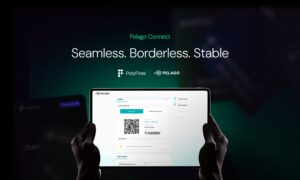In today’s global market, businesses are no longer bound by where they are located. It’s common to buy products from Asia, sell them to European customers, and manage people across continents. This increase makes things more difficult, particularly when it comes to money. Data silos in accounting, ERP, and payment processing systems make it hard to reconcile, cost a lot of money, and generate delays that are frustrating. The answer is payment solutions that are ready to be integrated with important corporate processes. Add payment functionalities to processes to make financial operations less of a mess and more of a strategic asset. This will make it simpler for international payments to expand faster and on a larger scale.
Integration that uses APIs breaks down barriers
The API makes this efficiency possible. A secure API lets software applications talk to one other in real time. Your payment platform for international payments may be able to connect straight to QuickBooks or Xero. When you use an API to request payment for an ERP-generated invoice, it is instantly marked as paid and reconciled in your books. This cuts down on the tedious and error-prone task of manually exporting and importing data. Modern financial technology companies like OnlineCheckWriter.com provide developer-friendly APIs and white-label solutions that let businesses add payment options to their apps. This makes everything easier, from complicated international payments to simple data transfers, which cuts down on administrative labor and gives employees more time to do more important things.
Making transactions throughout the world faster, more efficient, and more flexible
The speed of cross-border transactions is a big problem in international commerce. A convoluted network of correspondent banks makes regular wire transfers take longer and cost more. It may take days for these payments to settle. Delays hold up working cash and mess up supply chains. With new technologies like blockchain, payment systems that are ready to be integrated may settle in minutes instead of days. European and Asian platforms that settle quickly show that this quickness helps businesses stay in business.
Financial Control and Less Friction in Operations
Integration not only speeds things up, but it also makes managing money easier and gets rid of operational friction. Global companies have to put money in foreign currency accounts ahead of time to make payments. This ties up a lot of cash and makes it harder to maintain liquidity. With advanced technology, you may make direct payments from a central digital wallet and settle transactions on demand without having to put money in beforehand. It frees up working capital and makes it easier to manage the treasury. Integrated systems also make security and compliance easier to manage. These systems are certified by SOC 2, PCI DSS, and GDPR, which means they handle sensitive financial data to the highest standards in the world. This automated compliance with international payment rules lowers risk and builds trust with partners all across the world. The seamless flow of data makes reconciliation automatic, which gives finance teams an up-to-date and accurate cash position and speeds up the closing of the books each month.

































